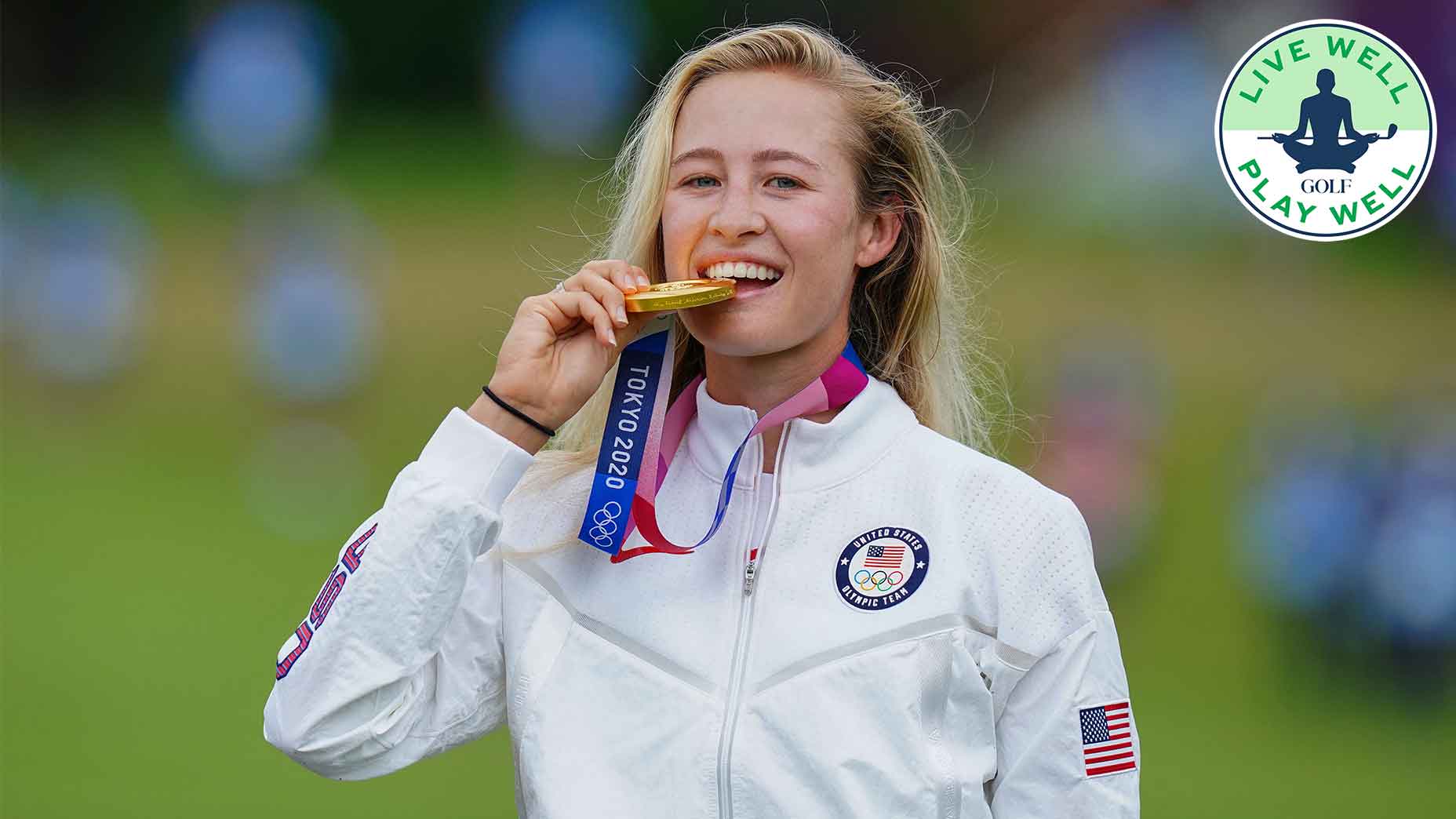
A good night’s sleep helped Nelly Korda win gold in Tokyo.
Getty Images
Over the last few weeks, Nelly Korda has travelled from the U.S. to France, and then to Japan en route to winning a gold medal at the Tokyo Olympics. While hopping through time zones is a part of the job when you’re a professional golfer, it can seriously mess with your sleep schedule and your ability to play at the highest level.
For Korda, proof of that lies in the data captured by her Whoop.
Over the last 30 days, she’s averaged about seven hours and 22 minutes of sleep per night with an average recovery score of 54.8%. In Tokyo, Korda’s average time asleep dropped to six hours and 34 minutes, likely because of the seven-hour time difference between Tokyo and her stop in France. She said as much in speaking on the topic of jet lag to my colleague Sean Zak.
“I woke up at 1:30 a.m. thinking, ‘Oh, I’m ready to get my day going, it’s probably 7 a.m.’” she told him. “Nope. And then I couldn’t fall asleep until around 4:30.”
Criss-crossing through time zones can affect a person’s ability to sleep, so it’s not surprising Nelly saw her average time drop during the Olympics.
However, there is a point to be made about her data as well that demonstrates just how important getting enough sleep and feeling well-rested is for on-course performance.
Before Round 2 of the Olympic golf competition, Korda slept seven hours and 16 minutes and woke up to a 77% recovery score, meaning her body was ready to perform. That same day, she fired a nine-under 62 and tied the women’s single-round Olympic scoring record.
Why a good night’s sleep is key to playing well
What does this mean for you, the average golfer? Viewing sleep as part of your performance and taking it seriously is the first step to playing your best.
Dr. Jeffrey Durmer, a sleep expert for Team USA, suggests establishing a consistent bedtime and wake time as one of the simplest ways to take full advantage of your body’s natural sleep patterns. You don’t have to go to bed at the exact same time every single night, but laying down inside a consistent 30-minute window will help.
You should also remove technology and devices from your room to avoid disturbing your circadian rhythm. If you’re anything like me, you’re probably addicted to endlessly scrolling through your phone, but that can have seriously negative effects on your ability to fall asleep and stay asleep.
All of this is to say that making some small adjustments to how you view sleep and your daily routine can have huge positive impacts on your golf game. So start catching more Z’s if you want to make birdies.










